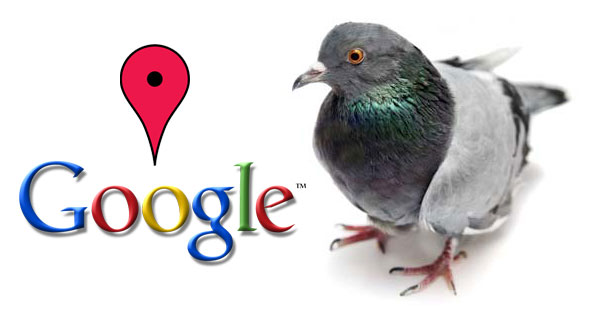Google is constantly on the move with constant local search algorithm changes. Recently, the company introduced a major change, adding stronger ties to web search signals. These changes are visible on the Google Maps search results as well as the web search results. The update has been referred to as the “Pigeon” update, and this has impacted several websites in terms of rankings; many local businesses may have experienced an increase or decrease with referrals.
Google refused to go into detail with this update, but ensures us that the Pigeon update goes into deeper roots with its web search signals, strengthening the ranking signals they use, along with features such as synonyms and Knowledge Graph. Changes in Google Maps search results will be visible due to improvements concerning the distance and location parameters.
Considerable Changes
Most of the changes have come on the back end of the network, which have significantly affected the users who are on the front end. The major significance we’ve noted is the update will impact most of the local businesses that are closely related to traditional rankings and search signals. The method of displaying local search listings similar to standard search results disfavors the Google Places listings, making this update relatively shocking for many businesses. The update has only affected the US English search results and Google has yet to reveal if and when it will spread to other locations and different languages.
As mentioned previously, Google hasn’t detailed out reasons as to why the update has occurred. However, suggestions behind the update relate to online directories and their worries ever since Google Places was launched. Directories such as Yelp constantly complained about their continuous drop in rankings while Google took over the top spots with their listings. Yelp specifically complained about a top notch restaurant in San Francisco, California, that had been dominated by other search results despite its popularity in the city. There is no official statement by Google suggestion this as being the reason to the Pigeon update, but now this restaurant is ranking high in Google.
Sites that list local restaurants, tourist attractions and other places are the ones to benefit the most from the Pigeon update; they will no longer be competing with Google Places. Local businesses that run traditional SEO may experience a setback due to their lack of competitiveness with local listings. There are a few tips to adapt to the new algorithm.
Expose your Business
Focus on the source of traffic your website is bringing in, instead of trying new places. Understanding where your traffic is coming from is vital; it will help you focus and increase your traffic from that one source alone. Also, focusing on well known online directories, such as Yelp will help you benefit from the Pigeon update, with directories such as Yelp getting a boost in rankings. Furthermore, make sure you’ve maintained an active website that engages with the audience and keeps your traffic hooked. A high bounce rate has always been a disappointment as far as Google and website rankings are concerned.

